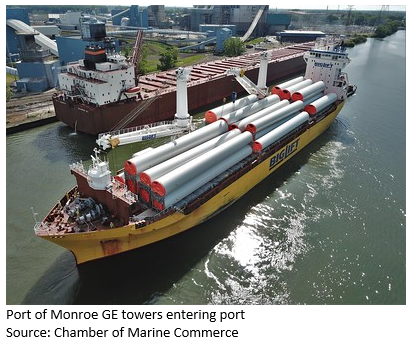Logistics

September 26, 2020
Great Lakes Ore Shipments Plummet in August
Written by Sandy Williams
Iron ore shipments on the Great Lakes fell by more than 40 percent in August compared to a year ago, said the Lake Carriers’ Association. Shipments transported by the U.S.-flagged fleet totaled 3.6 million tons and were 37.9 percent below the five year average for August. Year-to-date figures show a 25.9 percent decrease through August, said LCA.
Cargo volumes overall on the Great Lakes were hit hard by the COVID-19 pandemic. The Port of Duluth-Superior reported a 31 percent decrease in tonnage in August compared to 2019.
“No one expected a pandemic, but the port is weathering the storm,” said Deb DeLuca, executive director of the Duluth Seaway Port Authority, calling the current shipping season “unprecedented
Steel capacity utilization dropped dramatically during the first half of the year due to weak demand and idled mills and is currently maintaining an average rate of around 64.5 percent. The resulting impact on iron ore caused shipments to plunge almost 26 percent from January through August to 24.3 million tons, compared to shipments of 32.8 million in the same period in 2019.
The Chamber of Marine Commerce reports total cargo volumes through the St. Lawrence Seaway from April through August were down about 8 percent from last year to 19.3 million tons.
Grain and wind-turbine shipments have helped ease the downturn for ports on the Great Lakes. Nine ports have received wind turbine components this year that were headed for wind farms across the Midwest.
“A season like this emphasizes the importance of cargo diversity in a port,” said DeLuca
Grain shipments and a 160 percent surge in project cargo from this time last year has been a boon for the St. Lawrence Seaway, said Bruce Burrows, President and CEO of the Chamber of Marine Commerce. “While some key commodities remain down, we are expecting good harvests across the U.S. Midwest and Canada. The Seaway is poised for a big push of grain exports right up to the end of the year. In these precarious times, this binational transportation corridor will be more essential than ever to the economic recovery of both the United States and Canada.”







